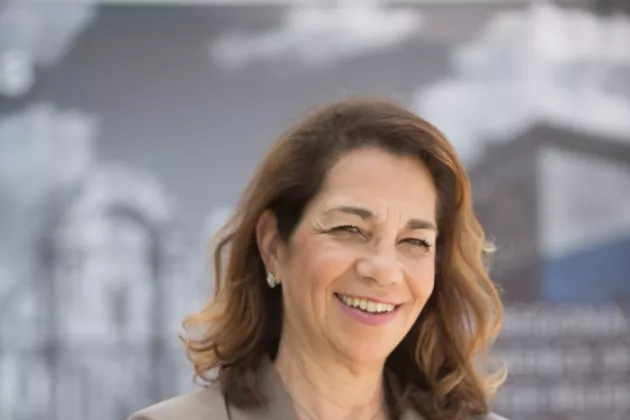Since 2011 and the start of the Arab Spring, leading politicians in Tunisia have been trying to persuade Akiça Bahri to accept a cabinet post. She has refused. Until now.
- I felt that my knowledge and experience really could be useful for the country, and through my previous role as State Secretary I have also gained a broader understanding of politics.
Has worked with water all her career
Akiça is a trained agricultural engineer and has worked with water in various ways throughout her career. It has been about management and development of water resources and impact on the environment with a focus on, for example, quality and efficiency.
She defended at LU 1995 with a dissertation on the environmental impacts of marginal waters and sewage sludge use in Tunisia.
Her supervisor was Professor Ronny Berndtsson, at LTH (now deputy director at CMES).
- Ronny is the person who has most influenced my career through his deep knowledge, his network and his encouraging ways, she says.
But her story with LU goes even further back in time. Already in 1984 she was here to participate in a course on water resources development and management in arid and semi-arid regions. She herself and her knowledge made an impression and she was asked to lecture in the training course, which she then did every year for a long period. It was about traditional water harvesting methods, irrigation with brackish water and use of reclaimed water and biosolids. A topic that has been a common thread throughout her professional life.
She has also been involved in an EU project on farmers' adaptation and sustainability, together with several LU researchers, including Ronny Berndtsson.
Sweden - a second home country
- I have been to Sweden, mainly in Lund and in Stockholm, countless times. Among other things during World Water Week *. I see Sweden as my second home country and have always been very warmly received there, Akiça Bahri says.
Since March this year, she has been the State Secretary in charge of Water Resources at the ministry of Agriculture, Water and Fisheries and then Minister of Agriculture, Water and Fisheries since September. Olive oil is the country's first largest export commodity followed by dates and fisheries.
The challenges within her area of responsibility are huge.
It is about water scarcity and global climate change. Farmers must adapt to the recurring effects, such as water shortages and water quality degradation, and at the same time be able to contribute to food security for an increasingly vulnerable society. The pandemic has also fundamentally changed the conditions for both agriculture and fishing.
With the Covid situation, we have to think through the entire production chain. For example, how can we better support small farms both now and in the future. I am also very keen to support women in the agricultural sector, and also to make young people want to stay in our country and work in the agricultural sector. There is also a lot of room for product development and I would like to help put Tunisia on the map by marketing what we have that is unique, says Akiça Bahri.
Facts
Akiça Bahri defended her dissertation “Environmental impacts of water and sewage sludge use in cultivated fields in Tunisia” at LU. She has been the coordinator of the African Water Facility (AWF) at the African Development Bank, the director for Africa at the International Water Management Institute (IWMI), director of research at the National Research Institute for Agricultural Engineering, Water and Forestry in Tunisia, and professor at the National Agricultural Institute of Tunisia.
* World Water Week is one of the world's most important annual water events with a wide range of water-related topics, including climate change, food safety and innovative technologies.


